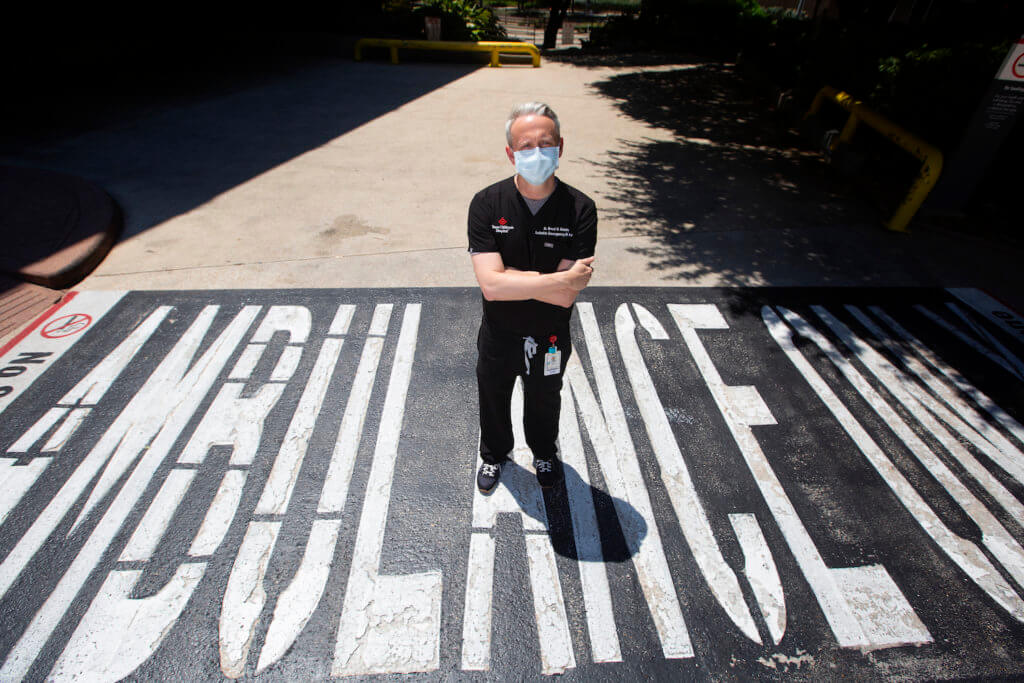Teacher Offers Life Lesson for Not Texting and Driving

Seconds into texting a photo to a friend, Ashley Boehme’s life changed forever. In that instant, the 31-year-old from Beaumont veered off the road, hit a chain link fence and uprooted a metal pole that smashed through the windshield and into her face.
Boehme’s accident is one of thousands nationwide attributed to texting or cell phone use, reports Robin Garza, manager of Trauma Services for Harris Health System’s Ben Taub Hospital.
Boehme, a kindergarten teacher, still remembers her March 2014 accident and is today a strong advocate against texting and driving.
“I’m lucky to be alive, but my life has dramatically changed. I was in a lot of pain and it’s been really difficult,” she says. “Before, messages of ‘no texting’ never fazed me. I always thought, ‘It’s never going to happen to me.’ Now I tell people, if you don’t do it for yourself, think about how your family and friends are affected by your decision to text and drive.”
Boehme suffered extensive head and facial injuries including a spinal fluid leak, a blow out to her left eye socket, bone fragments in the optic nerve, and broken nose, cheek and jaw bones. Her injuries were so severe she was transported by ambulance to Ben Taub Hospital for its Level I trauma expertise.
“Texting that night was one of the worst mistakes I’ve ever made,” she adds.
Ben Taub Hospital and others in the state are participating in the Texas EMS, Trauma and Acute-Care Foundation’s campaign “Just Drive!” The campaign was championed and created by Garza to raise awareness of the dangers of all driving distractions and their effects on road safety.
“Cell phones are a reality in today’s world. However, research shows that texting or using the Internet while driving increases your chances of a crash by up to 23 times,” Garza says. “The research also shows that talking on a cell phone while driving makes you four to five times more likely to be in an injury-causing accident.”
Garza cautions that even drivers who use hands-free devices to text or make calls are at risk for wrecks.
“It’s the distraction, not the device that creates the danger,” she adds.
Doctors told Boehme that if the fence pole had hit her face millimeters to the left or right, she would have died immediately. She still faces more medical procedures and doctor visits, has some vision problems and minor memory issues, but is slowly resuming her normal life. Recently, she became engaged to her fiancé Brandon Kelley and plans to wed in November.
In 2012, the National Safety Council reported in Texas:
• Cell phone use factored in 3,283 crashes
• Distracted driving factored in 10,261 crashes
• Inattentive driving factored in 82,833 crashes
Boehme now encourages others not to text or use cell phones while driving. In fact, her mother no longer uses her cell phone while driving, and ensures this by placing the phone in her purse and the purse in the backseat.
“It’s a tough lesson to learn that a text or telephone call can wait,” she says.
For more information on the Just Drive! campaign, visit www.justdrivetexas.org.




